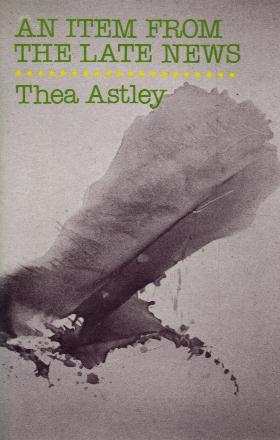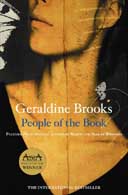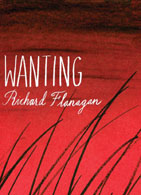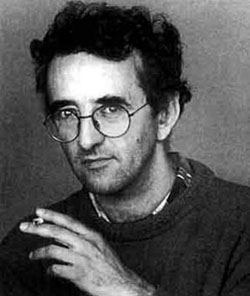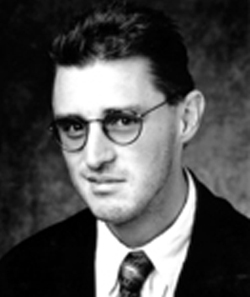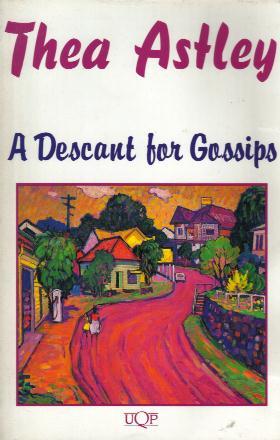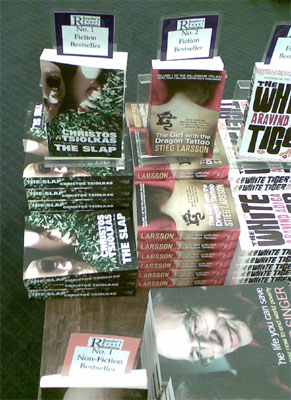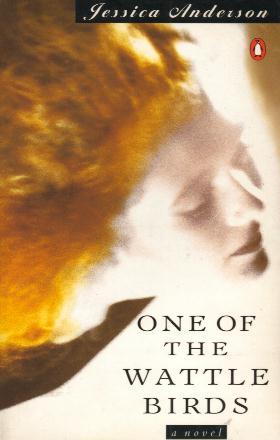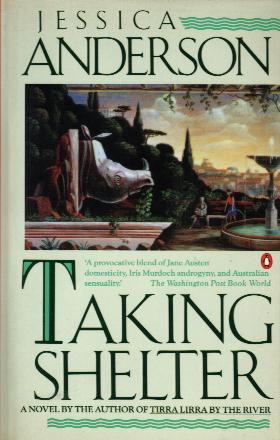[This novel has been shortlisted for the 2009 Barbara Jefferis Award.]
From the publisher's page:
People of the Book crosses continents and centuries to bring stories of hope amidst darkness, compassion amidst cruelty, all bound together by the discoveries made by a young Australian woman restoring an ancient Hebrew book. When Hanna Heath gets a call in the middle of the night in her Sydney home about a precious medieval manuscript that has been recovered from the smouldering ruins of war-torn Sarajevo, she knows she is on the brink of the experience of a lifetime. A renowned book conservator, she must now make her way to Bosnia to start work on restoring the Sarajevo Haggadah -- a Jewish prayer book -- to discover its secrets and piece together the story of its miraculous survival. But the trip will also set in motion a series of events that threaten to rock Hanna's orderly life, including her encounter with Ozren Karamen, the young librarian who risked his life to save the book. As meticulously researched as all of Brooks' previous work, People of the Book is a gripping and moving novel about war, art, love and survival.
Reviews
Clare McHugh in "The New York Sun": "In reality,
People of the Book is of much more substance than Dan Brown's overwrought, silly, and ultimately distasteful thriller could ever hope to be -- yet Ms. Brooks's work is just as entertaining. She has accomplished something remarkable, fashioning a story that is compelling and eminently readable, even as she maintains high intentions and an earnest purpose."
Ursula Le Guin in "The Guardian" "Her performance will satisfy many readers. The tale is full of complex twists and turns, with even a bit of mystery plot towards the end; there's sex, a rather tenuous love story and the obligatory descriptions of acts of violence...The story sprawls, but it is all firmly planned and plotted -- possibly too firmly...Full of action but with no leavening of humour, no psychological revelations, no vivid language to focus description, the chapters grind on. Most unhappily for a historical novel, there is little sensitivity to the local colour of thought and emotion, that openness to human difference which brings the past alive."
"Publisher's Weekly"
concludes: "Brooks is too good a novelist to belabor her political messages, but her depiction of the Haggadah bringing together Jews, Christians and Muslims could not be more timely. Her gift for storytelling, happily, is timeless."
Janet Maslin in "The New York Times": "the intense bibliographic appeal of
People of the Book turns out to be a mixed blessing. It lands Ms. Brooks neck-deep in research. It overburdens her tale in ways that make it more admirable than gripping."
Ami Sands Brodoff in "The Globe and Mail": "'Haggadah' stems from the Hebrew root
hgd, 'to tell,' and the rescue and preservation of the Sarajevo Haggadah dramatized in
People of the Book brings home with fearsome clarity how inextricably linked are words and human life: the people who created the book, owned it and later rescued and preserved it endured pogroms, the Inquisition, exile, genocide and war."
Terri Schlichenmeyer in "The Eagle-Tribune": "
People of the Book starts out slow; so slow, that I wasn't sure I could make it through almost 400 pages. There's a lot of setup to make the story work, and not much happens for the first couple segments. In the end, I was glad I stuck it out...With time-framing reminiscent of
Pulp Fiction, some factual history, the existence of a real book and a fictional character who is increasingly easy to like, the Pulitzer Prize-winning Brooks takes you on a five-century trip from Bosnia to Venice, Vienna to Spain, and inside mosques, churches and torture chambers...If you like historical mysteries, antique-hunting or
The DaVinci Code, pick up
People of the Book. This book about a book is a double delight for anyone who craves the written word."
Susan Comninos in "The Philadelphia Inquirer": "the novel, in its proselytizing zeal for universality, sometimes puts anachronistic lingo in the mouths of its medieval characters. For instance, the refusal of a Moorish slave girl to humiliate a Christian woman -- by painting her naked likeness for their Muslim captor -- is explained by a self-help declaration: " 'No ... I can't do this. I know what it is to be raped. You can't ask me to assist your rapist.'"...
People of the Book shouldn't have to rely on such heavy-handed prose or pointed making of points. A simple explication of the real-life story of the Sarajevo haggadah -- one of individual bravery in the face of a larger brutality -- would have sufficed."
Lisa Fugard in "The New York Times": "We are left wishing Brooks had found a less obtrusive way to gather up the many strands of her narrative. While peering through a microscope at a rime of salt crystals on the manuscript of the Haggadah, Hanna reflects that 'the gold beaters, the stone grinders, the scribes, the binders" are "the people I feel most comfortable with. Sometimes in the quiet these people speak to me.' Though the reader's sense of Hanna's relationship with the Haggadah rarely deepens to such a level, Geraldine Brooks's certainly has."
Felicity Plunkett in "The Age": "Hannah's Australianness felt, to me, slightly anachronistic, or confected, or perhaps made with an eye to the international audience the Australian-born, US-based Brooks no doubt commands...In other respects, Brooks' characterisation is remarkable. Her ability to evoke the conflicts that tear at an otherwise-devout Rabbi, or the altruism of resistance in, for example, a young Muslim wife in Sarajevo in the 1940s, is exceptional...Brooks' ability to take an initial inspiration and weave from fact a vibrant fiction situates it within the rich seams of 'faction', increasingly frequent in contemporary writing."
Michael Upchurch in "The Seattle Times": "Brooks may be spelling out her message a little too explicitly here, and the way her imagined histories interlock can be a tad too schematic. But she does a sterling job of reminding readers how art objects -- no matter how damaged or fragile -- link epoch to epoch and world to world, putting the conflicts and follies of our own time into context."
Nancy Wigston in "The Toronto Star": "Brooks's major challenge remains the existence of a book that ought not to exist but stubbornly does. She allows herself considerable leeway -- rooted in history and logic, it must be said -- when it comes to her account of its creation: extraordinary storytelling meets extraordinary reality...In our world, 'no one expects the Spanish Inquisition' evokes the famous Monty Python sketch. But Brooks shows that for considerable chunks of time in Europe, many did expect the torturers...Brooks opens windows onto forgotten worlds, matching her stories to historical truths. Throughout, the survival of the
Sarajevo Haggadah speaks with its own thunderous eloquence."
Short notices
Lena on "The Reading Obsession" weblog: "I loved the book! The writer really caught the essence of the struggles of the Jewish people throughout history and really drew me into the story. It is not an 'on the edge of your seat' kind of book, but if the reader is looking for a wonderfully engaging story with a bit of a historical feel to it this book is a perfect fit for that type of reading."
Danielle Torres on the "Work in Progress" weblog: "The chapters alternate and with each chapter we discover what actually happened to the manuscript -- the hands it passed through to those who created it. It's all very creatively presented, and it seems that Brooks has certainly done her research well. Oftentimes in novels like these one period or plotline will dominate the other, but I was quite content with both the story set in the present and the individual pieces of the story in the past. I found it all interesting -- not ever wishing I could hurry on to a more exciting part of the story."
On the "Green Chair Press" weblog: "I am amazed by the amount of research that Brooks must have done to write her book. There's lots of information about bookbinding and conservation, as well as an incredible amount of historical detail. The adventures of the main, present-day narrator, Hanna, are awfully contrived, but the interspersed stories imagining the history of the Haggadah are much better. Certainly reading it was a fine way to spend a lazy Saturday afternoon!"
Interviews
You can listen to the author talking about her book on All Things Considered, from Minnesota Public Radio.
Bron Sibree in "The Courier-Mail":
Despite having written three historical novels, Brooks says she cannot fully explain her fascination with the past..."I liked history in school, but I was much more animated by politics, by the things that were really happening in society around me," she says...She likes too, to joke about her on-the-page attraction to men of the cloth -- "vicars, rabbis, imams, I don't know why" -- but insists she is not religious herself...She adopted the Jewish faith when she married fellow Pulitzer prize-winning journalist and author Tony Horwitz -- more, she says, out of a sense of obligation to history than to faith..."I'm very interested in all those big life-and-death questions, but haven't found answers to them in any spirit in the sky."
Jessica Yadegaran
talks to the author for "The Mercury News".
Brooks was
interviewed by "The BookGuys" for their radio program, and the interview is available for download for audio streaming.
You can also listen to a
radio interview with the author from station KCRW, and watch a
video interview on Australia's Channel Nine.
Other
You can read an essay by Brooks about the historical background to her novel published in "The New Yorker". It deals with the "Chronicles about Muslim librarian Dervis Korkut's heroism in Sarajevo during World War II."
If you're looking for more information about the author and her books you can find it on her website.
